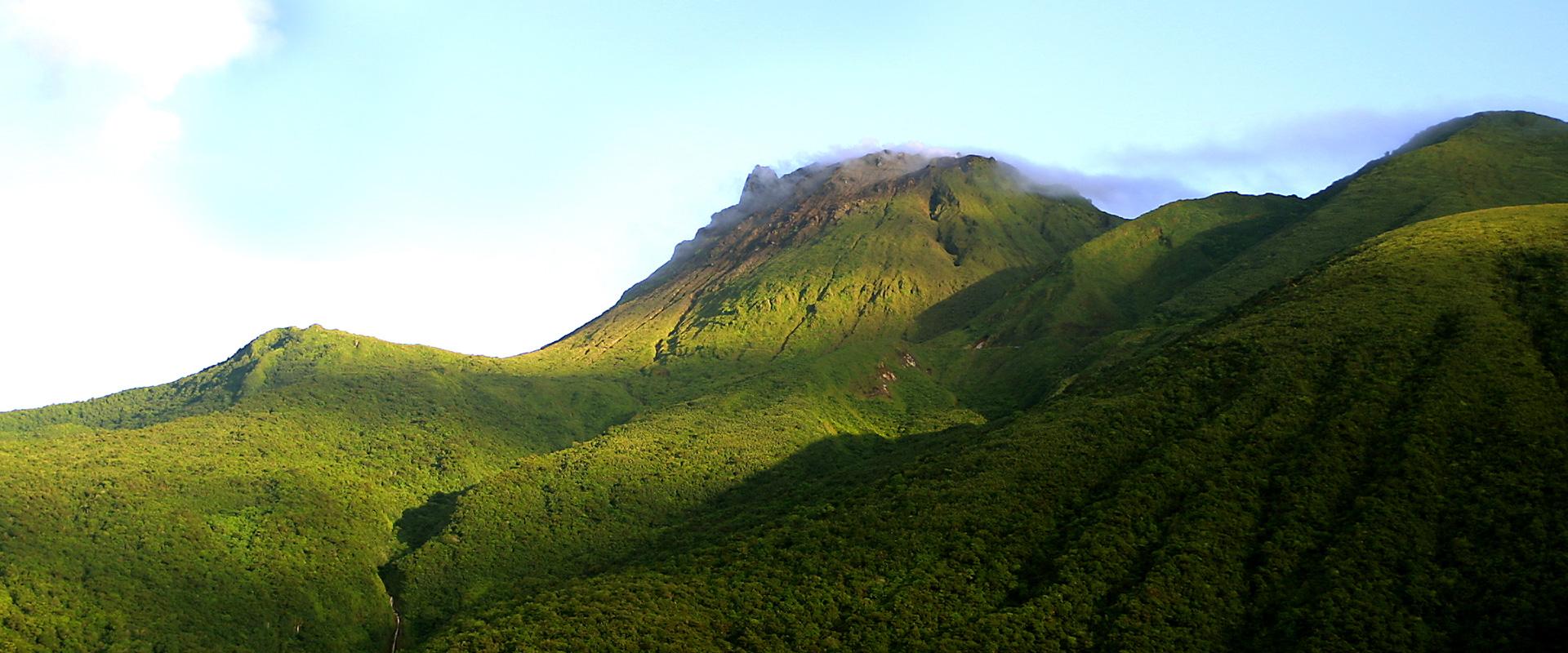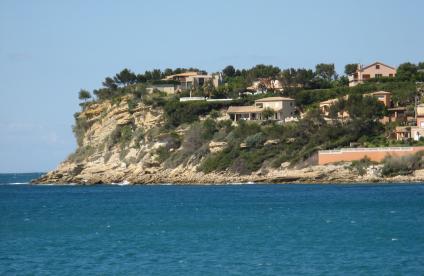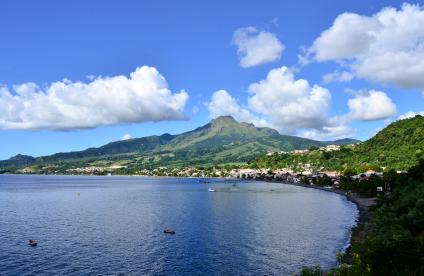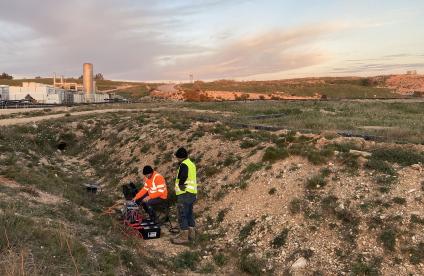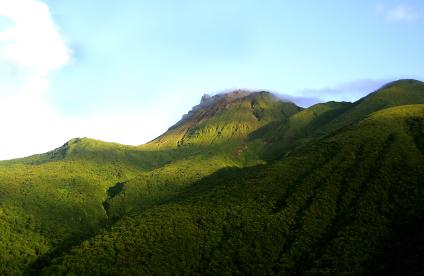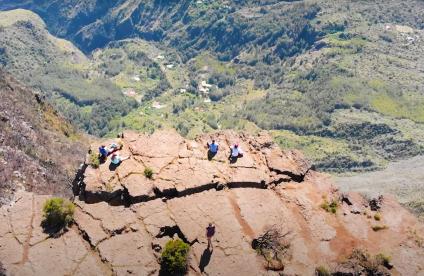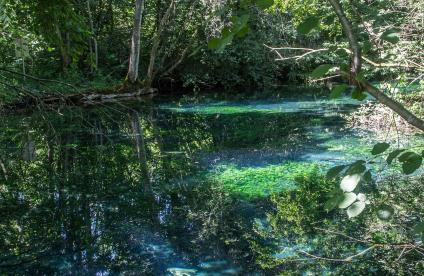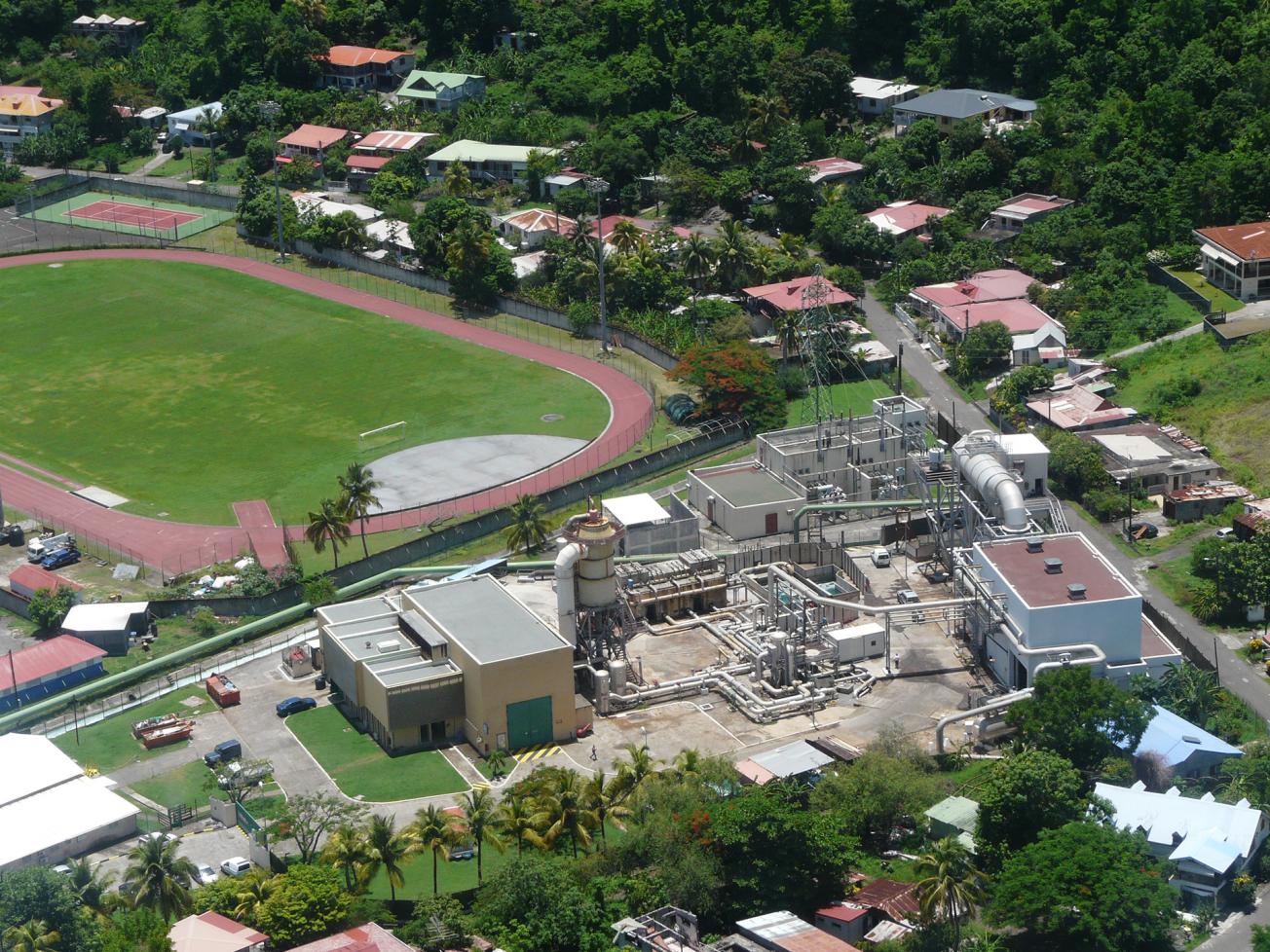
Aerial view of the facilities at the Bouillante geothermal plant (Bouillante, Guadeloupe, 2011).
© BRGM
The use and profitability of geothermal resources depends greatly on the behaviour of the deep fluids extracted, which transfer heat from the subsurface to the surface installations of geothermal power plants (for the production of heat and electricity).
When pressure and temperature conditions change, chemical or physical processes such as precipitation, corrosion or degassing occur, and these can have serious consequences for power plant operations and project economics. Currently, there are no standard solutions for operators to deal with these challenges.
Aims of the REFLECT project and expected results
The H2020 REFLECT project (Redefining geothermal fluid properties at extreme conditions to optimise future geothermal energy extraction) aims to avoid problems related to fluid chemistry rather than to treat them. This requires accurate forecasts and therefore a thorough knowledge of the physical and chemical properties of the fluids throughout the geothermal loop.
These properties are often only poorly defined, as it has so far proved extremely difficult either to perform in situ sampling or to measure temperature and pressure under extreme conditions. As a result, there are currently significant uncertainties in numerical model predictions. Consequently, new data in critical areas will be collected during the project and will serve as input data to improve numerical models. Several operating sites will be studied, including the site of Bouillante in Guadeloupe.
BRGM's role in the REFLECT project
BRGM is involved in all the technical aspects of the project, and particularly in modelling the behaviour of the fluid in the geothermal loop, an area in which BRGM is a leader. During the project, BRGM will work closely with all the organisations and institutes in charge of measurements, whether on site or in laboratories.
The work will include establishing kinetic laws for mineral precipitation, gas solubility, and calculating the properties of the brines exploited, such as density or heat capacity. BRGM will also contribute to drawing up a European Geothermal Fluid Atlas.

